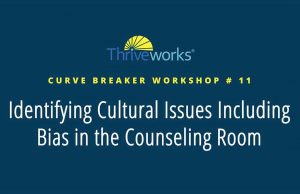
- It’s important the client feels engaged right away, in that the therapist feels welcomed and receives dedicated care from the get-go.
- Once the client and counselor have decided they’re a good match, the counselor can help them feel more comfortable by explaining everything they’ll need to know about the first session: no surprises makes for less anxiety.
- Open ended questions also help to create a comfortable therapy space, in addition to assisting the therapeutic process and helping the client to share their feelings.
- It’s also important that therapists assess each case individually and then cater to that client: for example, one may take different approaches with an anxious client and a depressed client.
- Also, active listening is an effective counseling technique, where the therapist reflects what the client has just communicated to them.
- Finally, it’s beneficial for counselors to close a session by asking if the client has any questions or would like to share any final thoughts or feelings.
*Gabrielle Freire is a licensed marriage and family therapist and has been for 14 years. She has worked in the mental health field since 2004, providing individual, group, and family counseling.*
Engagement is a primary focus of the initial portion of treatment. (There are typically 4 phases of treatment: the engagement phase, intake phase, implementation phase and the transition or discharge stage). I start engaging with someone when they first call me and ask me questions about therapy. I ask open ended questions to get the potential client talking about their symptoms and behaviors, that helps me get an idea if I will be able to help him or her (by this I mean to see if I have the experience and training to meet their clinical needs).
If I can help them, i move on to schedule the appointment, I ask their availability versus telling them a date/time that works for me. To also aid with the comfort levels, I tell them info about the first visit including parking suggestions and tell them to wait in the waiting room. That allows the client to not have to worry about when I will get them out of the waiting room. It also helps them plan their trip if they know where to park. Someone who is anxious may worry about finding parking, someone who is depressed may not have the energy to look for parking and give up rather than look for a parking spot.
I ask open ended questions to help them talk about their feelings. The open ended questions helps the potential client understand that I’m interested in them (which I believe builds the relationship). When we have that first phone call, I have an idea if they are depressed, anxious, if they had trauma, ADHD, impulsivity problems etc. That helps me prepare my office/myself for when they come in.
I will act differently with someone who has depression versus someone who is anxious. For example, for an anxious person, I may talk in a calm voice and try to let them talk more than say a depressed person who may not have as much energy to formulate questions. I put myself in their shoes and talk about things that I think they may want to know (not that I’m all knowing but I do know that coming in to a therapy office may be overwhelming and they may forget to ask questions). Someone who had trauma may need me to move a little slower and not make any quick body movements which they might interpret as jarring.
Other ways I help a client feel comfortable is by using active listening skills; reflecting back what they said to me, not interrupting, nodding my head when they speak. Those are all great ways to connect with the client. I ask them, “how did that make you feel” versus “you were feeling sad.” Also, matching body language is another way; it works on the subconscious mind, so if the client’s legs are crossed, I may also cross my legs. I don’t cross my arms even if they have their arms crossed because arm crossing is more noticeable and I wouldn’t want the client to feel that I was disconnected from them or I disapproved of what they were saying. I will even slightly nod my head when they are talking so they can see me validating what they are saying.
Additionally, I almost always end a session asking if they had any questions. That allows for clarification and also demonstrates that I value their input in their treatment. I also write treatment plan goals with their input and never reject an idea for treatment. I don’t laugh at them if they share something out of the ordinary and don’t laugh at them if they make a mistake.
Let’s keep in touch! Sign up to receive our newsletter:
Start a Relationship with An Exceptional Counselor
- Skilled and caring professional counselors
- Accepting all major and most insurances
- High-touch customer service & premium benefits
- Same- or next-day appointments
- Ultra-flexible 23.5hr cancellations













